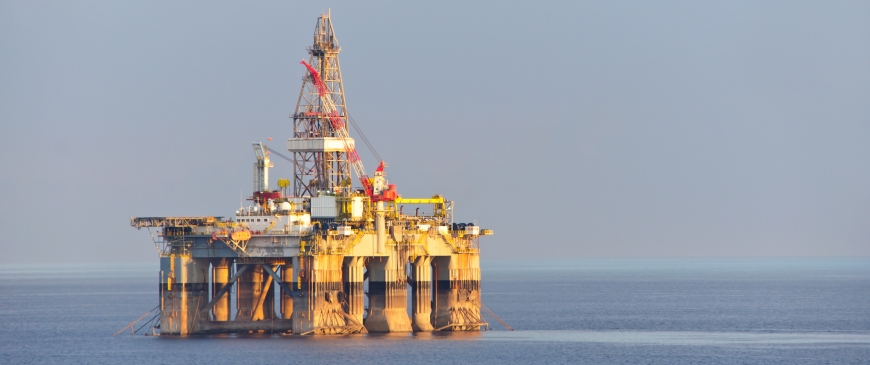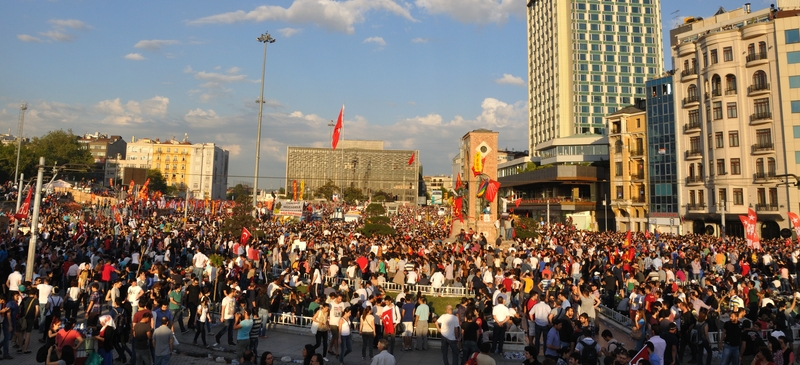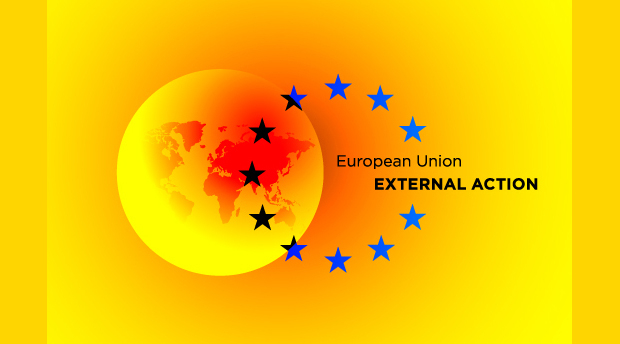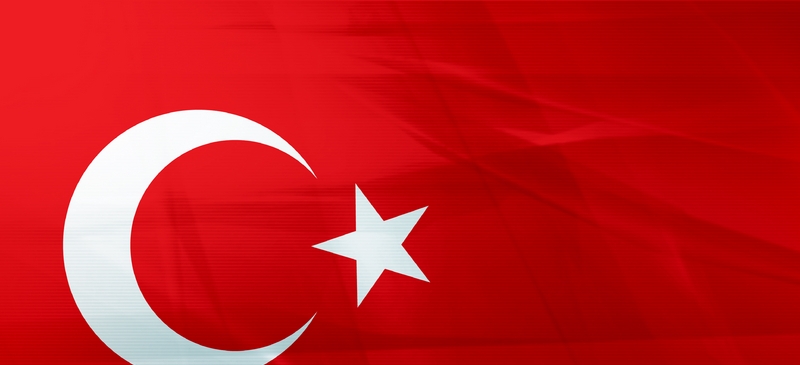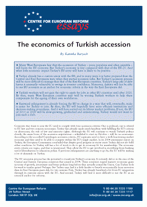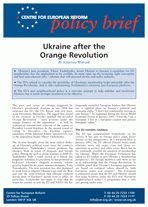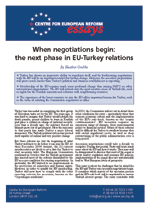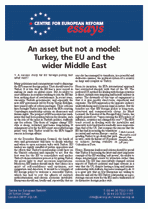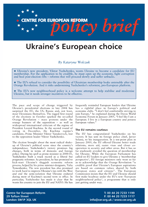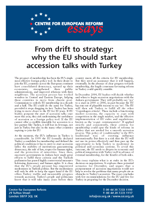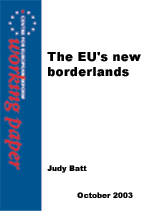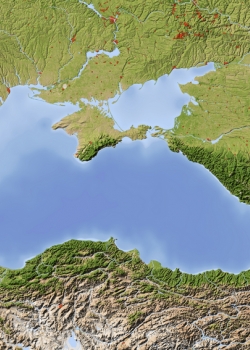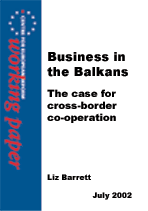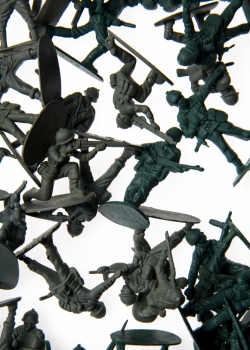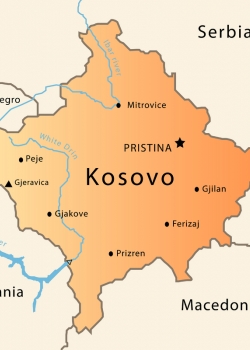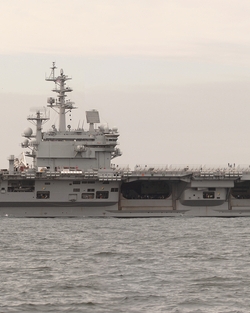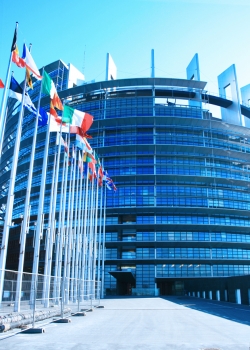Turkey & the Balkans
The economics of Turkish accession
01 July 2005
Countries that want to join the EU need to comply with four accession criteria: One is political, one is related to EU law and two concern economics.
Ukraine after the Orange Revolution
04 February 2005
The pace and scope of change triggered by Ukraine's presidential elections in late 2004 has surprised the EU, the US, Russia and, not least, most Ukrainians themselves.
When negotiations begin: The next phase in EU-Turkey relations
05 November 2004
Turkey has succeeded in completing the first group of Herculean tasks set by the EU. Ten years ago, it was hard to imagine that Turkey would abolish the death penalty, permit children to learn in Kurdish and place a civilian in charge of national security.
An asset but not a model: Turkey, the EU and the wider Middle East
01 October 2004
Many politicians and commentators tend to disparage the EU's nascent foreign policy. They should travel to Turkey. It is true that the EU has a poor record in making its mark on global crises.
Ukraine's European choice
01 October 2004
During the 1990s, the EU was busy completing its single market, introducing the euro and helping the Central and East European applicants get ready for accession.
From drift to strategy: Why the EU should start accession talks with Turkey
02 July 2004
The prospect of membership has been the EU's single most effective foreign policy tool. In their desire to join the EU, countries across the European continent have consolidated democracy, opened up their economies, strengthened their public administrations, and improved relations with their neighbours.
Serbia and the EU
01 April 2004
Five years ago, NATO bombed Serbia and killed around 500 civilians. Today, Slobodan Milosevic and Vojislav Seselj (the leader of the ultra-nationalist Radicals) are in custody in The Hague while a convinced democrat, Vojislav Kostunica, is prime minister.
Issue 35 - 2004
26 March 2004
- Raising the quality of Europe's higher education, Richard Lambert
- A European public prosecutor would be a dangerous distraction, Mónica Roma
- Serbia and the EU, Charles Grant
The EU's new borderlands
03 October 2003
With the 2004 enlargement, the EU will acquire many new neighbours, some of them unstable states with fragile economies. This working paper explains why the regions along the EU's new eastern border matter for Europe's security.
Issue 28 - 2003
31 January 2003
- How Europe can help the Middle East peace process, Steven Everts
- Is an old versus new European divide replacing East against West?, Heather Grabbe
- The return of Franco-German dominance?, Charles Grant
Who's ready for EU enlargement?
01 November 2002
After more than a decade of preparation, 10 new members are set to join the EU on May 1st, 2004. However, in the final phase of negotiations, both the candidates and the EU have lost sight of the historic importance of this unprecedented expansion.
Issue 25 - 2002
26 July 2002
- Don't create Eastern Eurosceptics, Heather Grabbe
- New rules for capital markets, Alasdair Murray
- Reforming the commission , Alasdair Murray
Business in the Balkans: The case for cross-border co-operation
05 July 2002
The logic of the single market should be applied to the Balkans so that the region can achieve peace and economic growth. Yet this requires co-operation among people that in some cases have recently been at war.
European defence: The next steps
02 October 2000
Last year, the Kosovo air war highlighted the impotence of Europe's armed forces.The Americans provided more than three-quarters of the bombs dropped, and most of the advanced communications equipment.
Issue 14 - 2000
29 September 2000
- European defence: The next steps, Charles Grant, Christoph Bertram, François Heisbourg
- Europe needs an avant-garde, but..., Jacques Delors
- A new institutional vision, Charles Grant
Pooling forces
01 December 1999
After many years of talking about boosting their defence capabilities but doing very little, the Europeans have made substantial progress in 1999. European governments have begun to develop the defence dimension of their common foreign and security policy.
A golden opportunity for reform
02 August 1999
It is easy to forget that the Eurosceptical mood of many EU countries is a recent phenomenon. In the late 1980s, when the EU's prime task was the creation of a single market, its popularity grew in every member-state.
What next for Kosovo?
01 June 1999
Although the guns have yet to fall silent, there is an urgent need to sort out the rehabilitation of Kosovo. Even under the best of scenarios, this is going to be an expensive and excruciating business.
Issue 6 - 1999
28 May 1999
- The EU needs defence convergence criteria, François Heisbourg
- A mandate for convergence, Kitty Ussher
- What next for Kosovo?, Michael Maclay
- Why Europe needs a constitution, Andrew Marr
Issue 9 - 1999
27 November 1998
- The treaties need radical reform, Charles Grant
- Pooling forces, Tim Garden, John Roper
- Transatlantic tensions, Charles Grant
- Europe's new economy, Charles Leadbeater, Kitty Ussher

